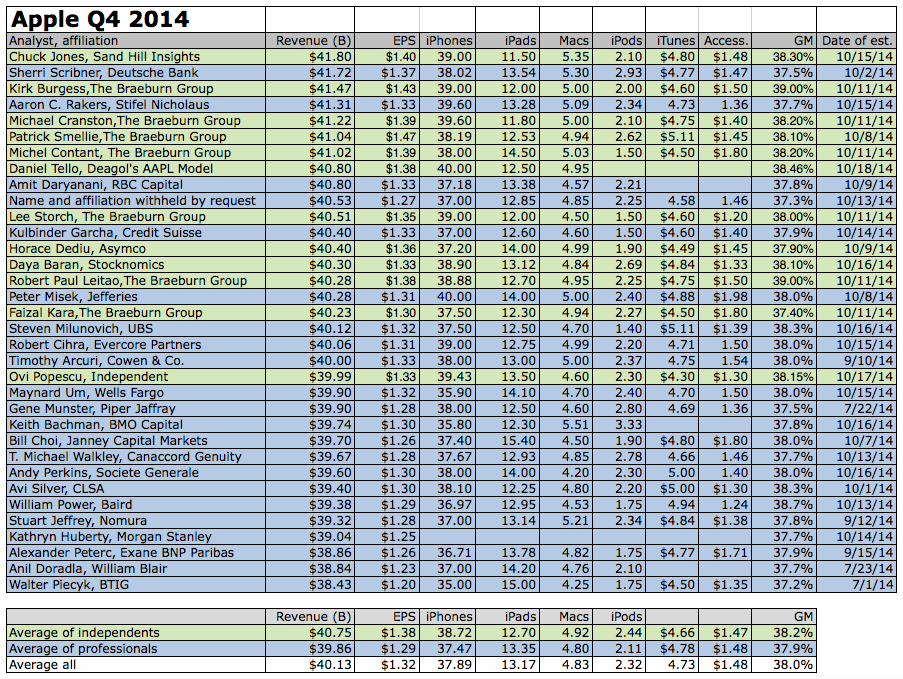LIVE Facebook s Q4 Earnings Beat Forecasts But Shares Fall
Post on: 16 Март, 2015 No Comment

Follow Comments Following Comments Unfollow Comments
Facebook ‘s highly anticipated fourth-quarter earnings will be announced shortly after 1 p.m. Pacific. They should reveal whether the social network can maintain the momentum it regained in the third quarter, as well as a sense of how well the entire online ad ecosystem is figuring out how to make money on the accelerating move to mobile computing.
I’ll post highlights of earnings as well as the conference call with analysts that begins at 2 p.m. Pacific. You can listen in yourself. too.
The earnings are out . and results mildly beat expectations. Revenues hit $1.59 billion, up 40% and better than Wall Street forecasts of $1.53 billion, and profits before certain charges were 17 cents a share, beating forecasts of 15 cents.
But the stock’s getting hammered in immediate after-hours trading, down nearly 7%. Update 1:20 p.m.: Shares recover a bit, but they’re still down more than 4%. Update 1:40 p.m.. Now shares are off only a fraction, so sentiment has improved on a closer look. Update 2 p.m.: And they’re back down 2.5%. In other words, they’re pretty volatile.
Investors clearly hoped for better. Mobile ad growth might be an issue, since mobile ads constituted 23% of overall ad revenues, a little shy of forecasts. Payments were flat on even comparisons, and while they’re a small portion of overall revenues, that might worry some investors who think Facebook should have a more diversified revenue stream. And Facebook is spending a lot on new products, the costs of which may be a concern.
Still, given that there’s no apparent major negative in the results, it could be simply that investors are taking profits on a stock that has risen 50% in the last three months. Update: It’s apparent after the earnings call that analysts and investors are concerned about CEO Mark Zuckerberg’s stated intention to make this an investment year, with high spending on new ad products and other features that will depress profit margins in 2013.
And the call is underway, with Zuckerberg. COO Sheryl Sandberg and CFO David Ebersman, often paraphrased. Update: You can get a full transcript from Seeking Alpha .
2012 was a big year for us, Zuckerberg says. More people now access Facebook on mobile than on the desktop. This was challenging for us to navigate. But now we’re coming into the year with strong momentum.
Mobile is the perfect device for Facebook–more people, greater engagement, and more ad money.
Instagram and photos are growing fast. “We’re there” on improving the mobile development process. Now the job is to come up with better mobile-first experiences.
Graph Search, the recently introduced internal/social search engine, is a big deal, he says.
Uh-oh, lost the sound. Hopefully back soon.
OK, back, missing a piece where he tempers expectations for services like Gifts and Graph Search. Expenses may grow at a faster rate than revenues this year because of investment, he says, because the company needs to focus not only on ad development but new user services. So the company isn’t focusing on profit growth this year. That isn’t going to please investors, even if it may be the right decision for the long term (Cf. Amazon.com).
Sandberg says the ad business continued its positive momentum (which it did ). We know our advertising products are delivering results for advertisers, she says. The biggest highlight of the quarter was increasing importance of mobile, she says, and our unique ability to reach targeted audiences at scale.
Facebook will continue to work with all kinds of advertisers, specifically four: brands, direct marketers, local merchants, and developers. Wal-Mart delivered 50 million mobile ads to customers. These numbers rival the scale of broader Web campaigns. Also, 42 million users claimed an offer through Facebook’s Offers product. (You can get more details on numbers like this in my next post . )
The Facebook ad exchange “continues to gain momentum,” Sandberg says. It served 1,300 advertisers, serving 1 billion ads a day by December. Promoted Posts helped double the number of local business advertisers. About 30% of advertisers using this were new customers, and 70% became repeat buyers.
Proving that our ads are effective remains a key focus, she says. Working with various measurement companies to do that. Conversion tracking began a few weeks ago, helping determine if an ad led to a sale or other desired action. That’s a big deal, Facebook ad firms tell me.
We’re very confident in the direction of our ad business, she says.
Ebersman goes over the details, which you can see in the release below. Ad impression volume was up46%, while average price per ad was down 4%, partly driven by lower prices in developing markets. Prices are still rising in developed markets–up 18% in the U.S. and Canada, for example.
Payments from games was flat, but there was an additional $5 million from user-promoted ads and Gifts. In other words, Gifts didn’t bring in much at all. In fact, Ebersman says as much.
2013 will be a year of significant investment, he says, and we plan to continue to hire aggressively and invest in new products for users and advertisers. Expenses will grow about 50%. Capital spending will grow from $1.6 billion last year to $1.8 billion this year.
Now to the questions:
Q: Was there more ad inventory opened up in Q4? Ebersman: Mobile revenue doubled from Q3 to Q4.
Q: How do you feel about ad load in mobile, and where are you in terms of penetration? Ebersman: We’re still really early.
Q: What about news feed quality? Zuckerberg: Got a 50% increase in engagement thanks to relevance improvements. Inserting ads caused a 2% decline in engagement in tests–in other words, very little.
Q: What milestones are you looking to hit on Facebook Exchange in 2013? Sandberg: We see good data from clients and customers that it’s driving more conversions. It makes the ads more targeted.
Q: What is the longer-term potential for social ads? Zuckerberg: We’re really early. But we expected not necessarily to show someone an ad every day but we’ve been positively surprised that there has been no real engagement hit from ads.
Q: Why so much investment this year, and will it moderate? Ebersman: Lots of opportunities in front of us this year. Not sure about further into the future.
Q: What are the video ad possibilities for Facebook? Zuckerberg: Definitely an opportunity. But nothing to talk about yet.
Q: Mobile-only users way up–what drove that? Ebersman: Just continued penetration of smartphones around the world.

Q: Any early signs of Graph Search on engagement? Zuckerberg: It’s going to be an important utility people use. We’re primarily rolling it out to tens or hundreds of thousands of people just to get data on how people use it, so we can roll out a better product to everyone.
Q: Any hint of new mobile features? Zuckerberg: Can’t say much. We’re not going to build a phone.
Q: How will right-hand-rail ads do this year relative to others? Ebersman: It’s hard to separate mobile and desktop feed ads and right-hand-side ads. It’s our job to find the best place to run those ads.
Q: How far along in providing tools and metrics to large ad agencies? Sandberg: Measurement is really important for us, and we’re working hard on this. Mostly need to educate people that the click is not the best metric. 99% of people who saw an ad and then bought a product in a store didn’t click on an ad.
Q: Can Facebook monetize games on mobile? Ebersman: We’re seeing strong growth of our games in iOS and Android. At this point, we don’t have any payments integration with these games. Growth more important, which could lead to monetization.
Q: Engagement trends among young, post-college users? Ebersman: Don’t break that out, but engagement generally still improving.
Q: What categories are the biggest near-term opportunities in ads? Sandberg: We think we have really big opportunities for spending by large brands. Measurement (again) is key. Targeting will help improve their results. In mobile, we’re in a particularly good position–scale and especially a natural ad format. Real identities allows us to deliver better, more relevant ads.
Q: The mobile ramp slowed as the quarter progressed–was that from purposely limiting ads? Ebersman: We’re very early and still making changes in terms of what ads we show, how we select them, how many we show.
Q: When do you anticipate mobile news feed will be accessible through exchange ad system? Sandberg: Won’t say.
Q: When will Gifts be big enough to matter? Ebersman: Lots of work to do on selection, payment process, etc. So can’t say yet.
Q: What mobile-first experiences are you working on? Zuckerberg: Won’t say.
Q: How is iOS 6 affecting mobile efforts? Zuckerberg: Three big platforms–iOS, Android, and mobile Web. Sorry, Microsoft. Android does allow for fairly deep experiences–deeper than on the less open iOS. But also can work directly with Apple to do deep experiences for iPhone and iPad.
Q: Color on decision to lower pricing floor on Marketplace ads (the ones on the right side)? Ebersman: Always trying to optimize. It’s way below the average prices. Lowering the floor may bring in more small businesses.
And that’s all for the call. At 3 p.m. Pacific, shares are down more than 4%.
———
Here are the basics from the release :














